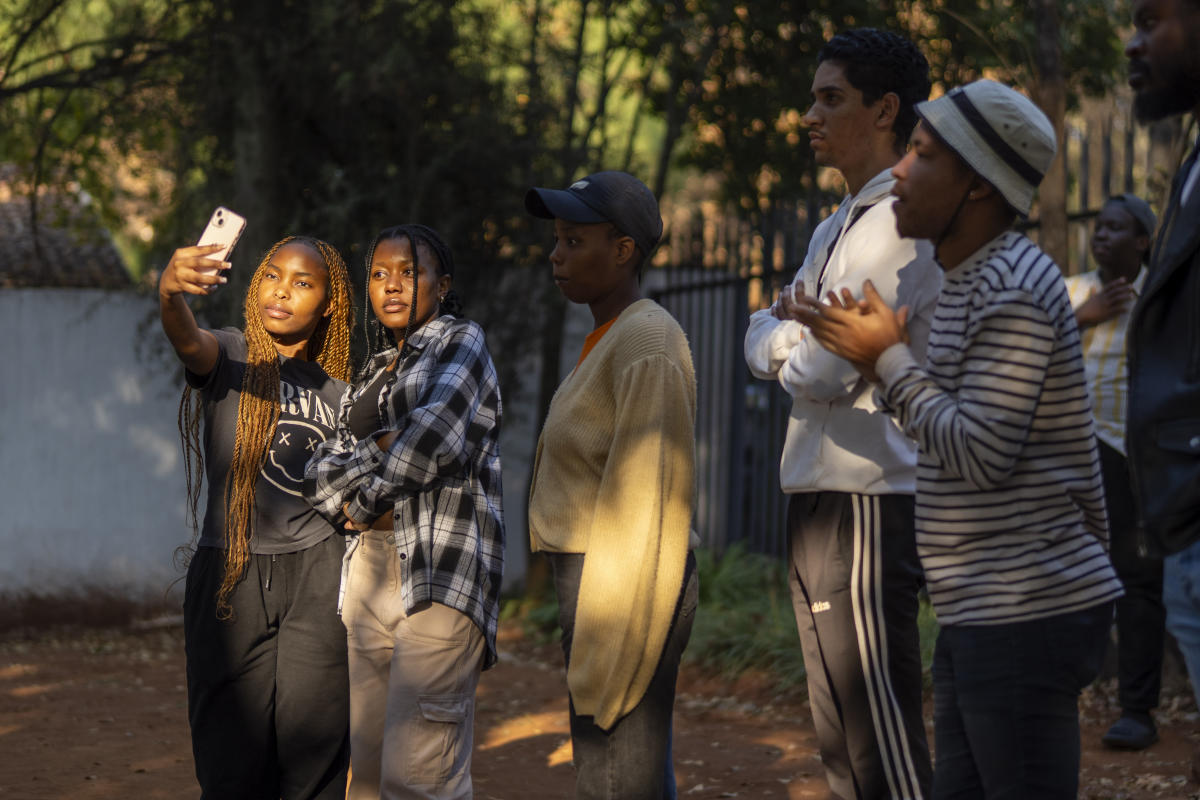NKANDLA, South Africa (AP) — Months ahead of South Africa’s election, 20-year-old Amahle Ncane and her good friends chose to turn peer pressure on its head and made their own unique pact: Unlike their moms and dads’ lost dreams after the high hopes of the very first democratic elections in 1994, they are going to keep theirs alive through the tally.
On election day on Wednesday, the very first time citizens, moving as a group, gathered to the ballot station at Ntolwane Main School in Nkandla, a backwoods in the eastern province of KwaZulu-Natal.
Outside the dirty school facilities in the mountainous and attractive location, they hugged, danced and sang “we are courageous.” Joining them was 56-year-old Sigcino Mfundisi Thusi. “I was likewise a very first time citizen in 1994,” he informed them, describing the specifying first-all race vote that ended the white minority guideline of apartheid thirty years back. He then discussed the despondency that sneaked in later on due to unsatisfied guarantees associated with high joblessness, corruption and bad service shipment.
“I make certain our moms and dads were dancing like this in 1994, however they are still unpleasant. I don’t wish to resemble them, our dreams cannot be postponed,” young Ncane reacted, with her good friends yelling in arrangement.
Thusi and the women chuckled off the jibes, however the discussion highlighted how young South Africans, unlike the older generation, are identified to see their vote count and their dreams concern fulfillment in a nation where youth hardship has actually ended up being a signature of unsatisfied post-apartheid goals. Numerous youths have actually seen this election as the most crucial given that completion of apartheid, with numerous viewpoint surveys putting the governing African National Congress celebration’s assistance at less than 50% before this vote in the middle of the disappointments.
“My vote today symbolizes a lot due to the fact that there is a lot that we are still confident for,” Ncane later on stated.
The issues they require fixed are palpable. South Africa’s main joblessness rate is at 32%, with the variety of jobless individuals increasing from 5.1 million in 2014 to 8.2 million this year, according to main figures.
Youths are most impacted, according to the most recent labor study launched by the nation’s analytical company 2 weeks before the election.
In between the last quarter of 2023 and the very first quarter of 2024, the variety of jobless youth increased by 236,000 to 4.9 million, the study stated.
Ncane was born ten years into South Africa’s flexibility from apartheid. She has actually heard tales from her moms and dads about how they withstood apartheid, commemorated at being permitted to elect the very first time in 1994 before misery took control of.
The misery had actually put South Africa’s young democracy at threat, as despondency led both the young and the old to keep away from the tally box in elections following the historical 1994 vote.
Citizen turnout that stood at near to 87% in 1994 dropped to 66% in the last basic election in 2019.
It plunged to simply over 45% in city government elections kept in 2021, according to German think tank, Konrad Adenauer Structure, which has workplaces in South Africa.
Youths, who make most of South Africa’s 60 million population, appeared less troubled to take part in that election.
The report kept in mind that about 1.8 countless the 18-19-year-olds eligible to enact the election, 90% did not sign up. Less than 20% of those aged 20 to 35 signed up to vote, compared to over 90% of the population aged 40, according to the report, which kept in mind factors for not voting as partially due to “inadequate modifications to individuals’s own individual situations.”
However Ncane saw situations altering in her rural neighborhood. Numerous youths, not able to discover tasks and academic chances, stumbled onto drugs and criminal offense, vices formerly mainly related to metropolitan locations.
Regardless of being high school trainees, Ncane and her group of good friends chose to drive favorable modification amongst their peers by walking around the town, pushing their coworkers to sign up as citizens.
“Youths don’t see a future so our task is to encourage them that they have an opportunity to affect the future they desire. We are attempting to provide self-confidence to vote,” she stated.
More than 27 million individuals have actually signed up to vote, the greatest given that the introduction of democracy in the nation. Over 40% of them are aged in between 18 and 39, according to the nation’s elections management body, thanks to projects by the federal government, political celebrations and youths like Ncane.
“After the 1994 elections in South Africa, citizens under 25 haven’t been taking part in the exact same method as other age. Numerous celebrations saw this year as a chance to alter that,” stated Christopher Stone, a teacher at Oxford University’s Blavatnik School of Federal Government, who has actually been seeing the election carefully.
Late citizen registration figures were more informing. When the nation’s electoral management body revealed a window for a round of late citizen registration throughout a weekend in November in 2015, near to 80% of newbie registrations were of individuals more youthful than 29, according to the nation’s elections management body.
It is a pattern that Ncane, who desires study for a politics degree after high school, wishes to maintain.
“I don’t care about their political associations, I simply desire youths to vote,” she stated, heading back home with her good friends to await the election results.
___
AP Africa news: https://apnews.com/hub/africa
